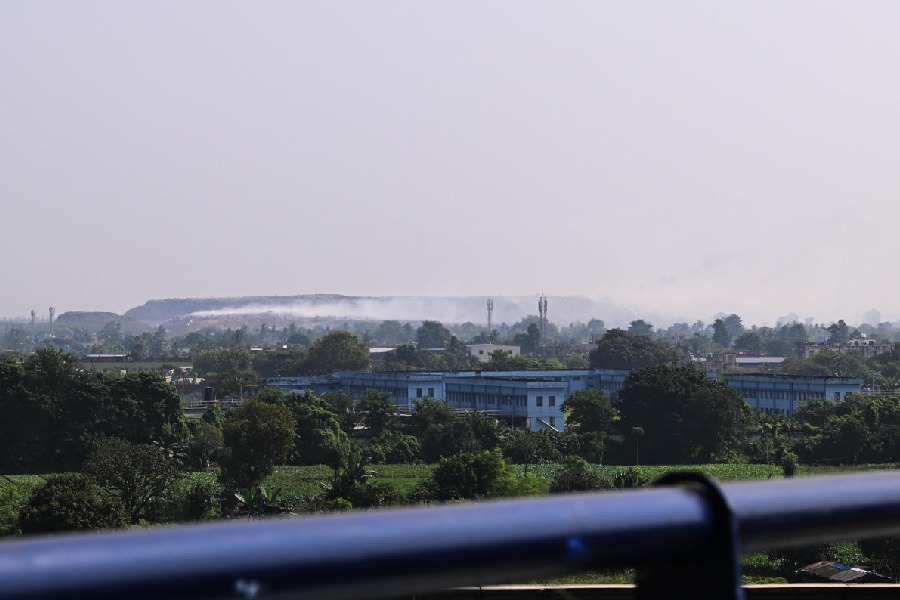Thick white smoke rose from the Dhapa waste disposal ground on Monday afternoon and filled the entire area.
The smoke only worsened the already poor air in Calcutta.
Plumes of smoke, spread over a large area, were visible to commuters travelling through the Parama flyover, more than 2km from the waste disposal site.
A waste management expert said fires in a heap of garbage, especially at a waste disposal site, are natural, but the authorities should have an actionable plan to control them.
When solid waste degrades, methane is released. Methane starts burning when it comes in contact with air. The process remains under control during the monsoon because of rain, which makes the waste wet and cuts down chances of fire.
During summer, the smoke is dispersed faster by strong winds. But as winter approaches, the natural dispersal slows down because of reduced wind speed and absence of rain.
An official of the West Bengal Pollution Control Board (PCB) said vehicles loaded with water remain stationed on the waste disposal ground to douse fires.
"This is a crude way to stop fires. There is hardly any other immediate measure that can be taken. We are working on some proposals for a long-term solution to this problem," said the official.
However, frequent instances of smoke billowing out of the waste disposal site raise doubts whether sprinkling is done properly or the measure is adequate.
The smoke spreads into the city whenever winds blow towards it. Such winds bring particulate matter and worsens the already bad air quality of the city.
Abhijit Chatterjee, an air quality management specialist, said he had seen smoke emanating from the site earlier, too.
"The volume of smoke suggests that natural burning is not the only cause. It could be that people are going there and burning waste. This has to be stopped and the authorities must be very alert to prevent any human-induced burning of waste," said Chatterjee, a professor at Bose Institute.
The foul air rising from the Dhapa site is adding to the volume of pollutants that hangs over Calcutta. The air quality monitoring stations in the city have been recording "poor" and "very poor" air over the past few days.
The fumes emanating from Dhapa contains toxic elements that can trigger a host of health problems.
Brajesh Dubey, a waste management specialist, said one of the toxic elements released is dioxin, which is carcinogenic. "The waste has plastic, which releases dioxins and other associated compounds when they are burnt. Dioxins are carcinogenic," said Dubey, a professor of civil engineering at IIT Kharagpur.
"The smoke would also contain particulate matters, which are among the worst air pollutants."
